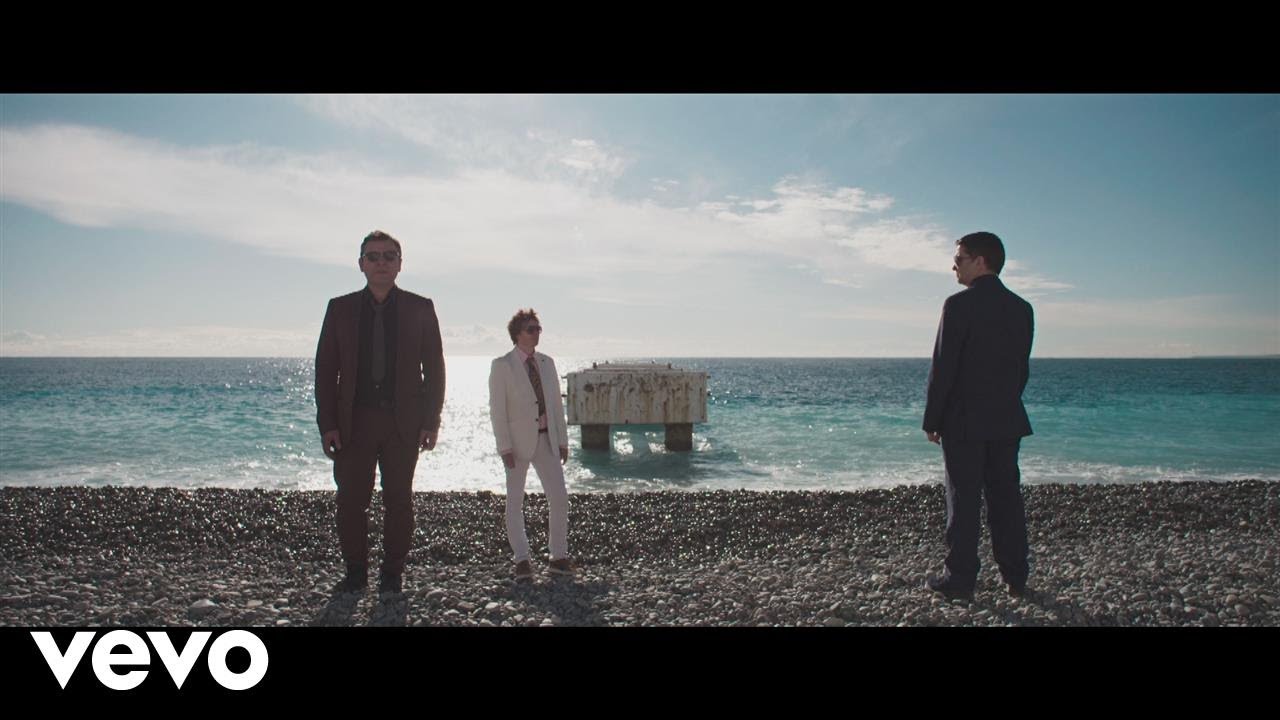Approaching a new Manic Street Preachers record for the first time is always a strange experience. They are a band with an array of distinctive musical tropes – unabashed and glistening riffs, bombastic waves of orchestral strings – and also a band for whom no album is ever like anything they’ve done before. As a group who perpetually seem to look both forwards and backwards, it can take a while to figure out exactly where they stand, and where exactly they’re going.
Resistance Is Futile is particularly tricky to decipher. It has been four years since they last produced a studio LP, their career-highlight pan-European monolith Futurology, the longest wait between Manics records ever. In that gap they lost their long-term Cardiff studio, toured two anniversary album-in-full shows for The Holy Bible and Everything Must Go and, by their own admission, struggled to find a way for new material to slot into place.
Futurology and its sister-album Rewind The Film felt like the end of an era, the natural and fitting conclusion of a cycle in which the band were revitalised and relevant in a way they hadn’t been since the 90s. Following that up after such a long time away is a daunting task.
It’s not as if the band haven’t made ‘comeback’ albums before, but where Everything Must Go in 1996 followed the disappearance of Richey Edwards and Send Away The Tigers in 2007 followed an extended period of relative mediocrity, Resistance Is Futile finds the Manics forced to regroup after a colossal and climactic success rather than a period of emotional or creative strife.
It is to their credit, then, that for the most part they have embraced their natural feelings of confusion about their state as a band in 2018. Lead single ‘International Blue’ might seem on first impression like an attempt to recapture that ‘Design For Life’ resurgent bombast, but in the context of the rest of the record it revels in rich and strangely celebratory melancholia.
Lyrically the album is about finding solace in the things you love, as an escape from a reality that can be confusing and difficult to navigate. Though the world around them is tumultuous and terrifying, the Manics seek stability in art, culture and the things they love; there are songs here in tribute to the paintings of Yves Klein, the poetry of Dylan Thomas and the photographs of Vivian Maier. Their lyrics are entirely on the nose and were it another band writing them they might be dismissed as simplistic; what prevents that is the unabashed passion that underpins them all. Part of the Manics’ charm has been their boyish delight in sharing their influences, and here that charm and passion is enough to carry a whole record.
Take ‘Liverpool Revisited’. It is melodramatic and passionate, with Wire’s lyrics narrating a time he was overcome by tears, wandering around Liverpool with his polaroid camera and musing on the city’s physical beauty and its defiant fight for justice following the Hillsborough disaster. Its lyrics are simple and direct – ‘As I wake to a sunset, the light dances on the Mersey / And I think of the 96 as the tears fall down on me’ – and its music is bombastic. In other hands it would be mawkish, but in the Manics’ it is genuinely touching.
Musically the record is unfortunately lopsided. Aside from ‘Liverpool Revisited’ and ‘International Blue’, there is a tendency to rely too heavily on a sombre verse plus anthemic string-laden chorus for the first half of the LP. Opener ‘People Give In’ is an acceptable statement of intent, but when third track ‘Distant Colours’ does essentially the same thing, it’s already a little wearisome. ‘Dylan And Caitlin’ – a duet with The Anchoress that sees her and James Dean Bradfield inherit the roles of Dylan Thomas and his wife – is an enjoyable pop duet, but too overglossed, direct and traditional to find a whole lot of depth in.
They settle in the second half, as if they’ve become more comfortable with their malaise and have lost the need to counter it with a jarring epic surge. ‘Hold Me Like A Heaven’ shows that they still have the power for unabashed pop writing, and recalls their superb recent cover of Fiction Factory’s ‘Feels Like Heaven’, while ‘Broken Algorithms’ simmers with momentum and intent. The final two songs are their strongest ending to an album in absolutely ages. ‘Song For The Sadness’ tows a more elegant line between glossy melody and downcast undertones, and the Wire-led ‘The Left Behind’ is slathered in irresistible and moving pathos and self-pity: “I never wanted you to change / I prefer to stay the same.”
This is an unusual Manics album, and perhaps their most unfocused musically since 2001’s stylistic mish-mash Know Your Enemy. But, unlike on that record, here the band are self-aware and all the more captivating for it. “Are we living in the past, where there’s nothing left to fear? / Won’t you say that you love me? Tell me what I want to hear,” sings James Dean Bradfield on ‘Distant Colours’. This is not the Manics’ best album, but it is one of their most charming. As a document of where they stand it is endlessly fascinating.



